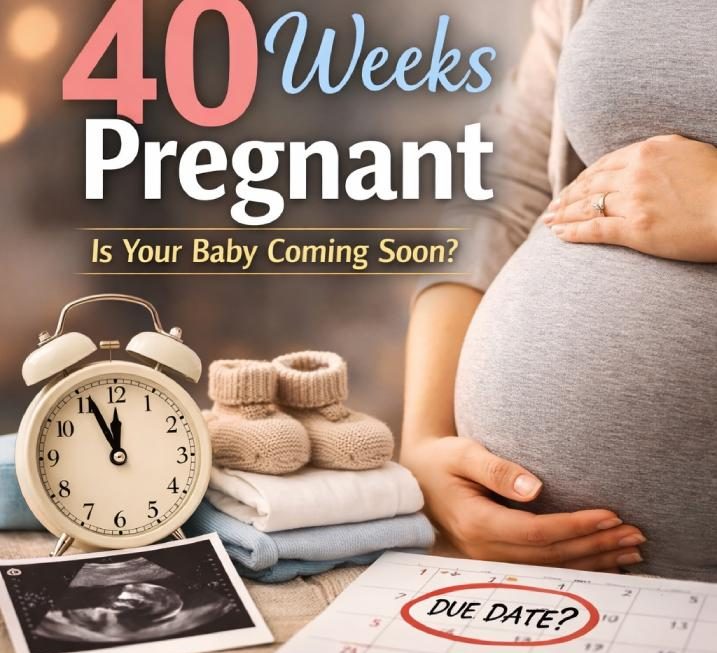Discovering you’re pregnant is an extraordinary moment filled with anticipation and questions. Among the most common inquiries is, “How many weeks am I pregnant?” Understanding the duration of pregnancy is crucial for monitoring fetal development and preparing for the journey ahead. In this comprehensive guide, we’ll delve into the intricacies of pregnancy weeks, exploring how to calculate them, what to expect during each stage, and answering common queries to empower expecting parents with knowledge and reassurance.
Understanding Pregnancy Weeks
Pregnancy is typically measured in weeks, starting from the first day of your last menstrual period (LMP). This method, known as gestational age, is the standard way healthcare providers determine how far along a pregnancy is. It may seem counterintuitive since conception usually occurs about two weeks after your LMP, but this convention aligns with the menstrual cycle, simplifying the calculation process.
Calculating Pregnancy Weeks
To calculate your pregnancy weeks accurately, count the weeks from the first day of your LMP to the current date. For example, if your LMP started on March 1st and today is April 3rd, you would be approximately five weeks pregnant. However, it’s essential to note that this method provides an estimate, and ultrasounds performed later in pregnancy offer more precise dating.
Tracking Fetal Development by Weeks
Each pregnancy week marks significant milestones in fetal development. From the early stages of cell division to the later weeks of growth and preparation for birth, understanding these changes provides valuable insights into your baby’s progress and your own body’s adjustments. Let’s explore what happens during each trimester:
First Trimester (Weeks 1-12)
- In the first weeks of pregnancy, your body prepares for conception, with ovulation occurring around week two.
- By week four, the fertilized egg implants in the uterine lining, initiating the development of the embryo.
- Weeks five to eight mark rapid growth, with the embryo’s heart beginning to beat and major organs forming.
- By the end of the first trimester, around week 12, the embryo has developed into a fetus, resembling a tiny human with distinct facial features.
Second Trimester (Weeks 13-26)
- The second trimester is often described as the “honeymoon phase” of pregnancy, characterized by reduced nausea and increased energy.
- Week 20 is a significant milestone, as many women undergo an anatomy scan to assess fetal development and gender if desired.
- Fetal movement, known as “quickening,” typically begins between weeks 18 and 22, providing a tangible connection to your growing baby.
Third Trimester (Weeks 27-Birth)
- As the third trimester progresses, fetal growth accelerates, and the baby’s movements become more pronounced.
- Week 28 marks the beginning of the third trimester, with regular prenatal check-ups increasing in frequency to monitor both maternal and fetal well-being.
- Towards the end of pregnancy, typically around weeks 37 to 40, the baby settles into the head-down position in preparation for birth.
FAQs About Pregnancy Weeks
1. How accurate is the calculation of pregnancy weeks based on the last menstrual period (LMP)?
The LMP method provides a reasonably accurate estimate of gestational age, especially when confirmed by early ultrasound dating. However, individual variations in menstrual cycles and conception timing can affect its precision.
2. Can pregnancy weeks be calculated differently if I have irregular periods?
For individuals with irregular menstrual cycles, calculating pregnancy weeks based solely on the LMP may be less reliable. In such cases, healthcare providers may rely more heavily on ultrasound dating for accurate assessments.
3. Are there any physical symptoms that can help confirm how many weeks pregnant I am?
While physical symptoms like nausea, breast tenderness, and fatigue are common early signs of pregnancy, they do not provide precise information about gestational age. Ultrasound scans and prenatal appointments are the most accurate means of determining pregnancy weeks.
4. Is there a difference between gestational age and fetal age?
Yes, gestational age refers to the duration of pregnancy measured from the first day of the LMP, while fetal age (also known as embryonic age) measures the actual time since conception. Gestational age is the standard used in medical practice for consistency and ease of calculation.
5. How do healthcare providers calculate the due date?
Healthcare providers typically estimate the due date by adding 40 weeks (or 280 days) to the first day of the LMP. This estimation assumes a regular 28-day menstrual cycle and ovulation occurring on day 14. However, due dates may vary based on individual factors and ultrasound dating.
Navigating the journey of pregnancy involves understanding the nuances of gestational age, fetal development, and the physical and emotional changes experienced along the way. By familiarizing yourself with how to calculate pregnancy weeks, tracking fetal milestones, and seeking guidance from healthcare professionals, you can embark on this transformative experience with confidence and anticipation.



